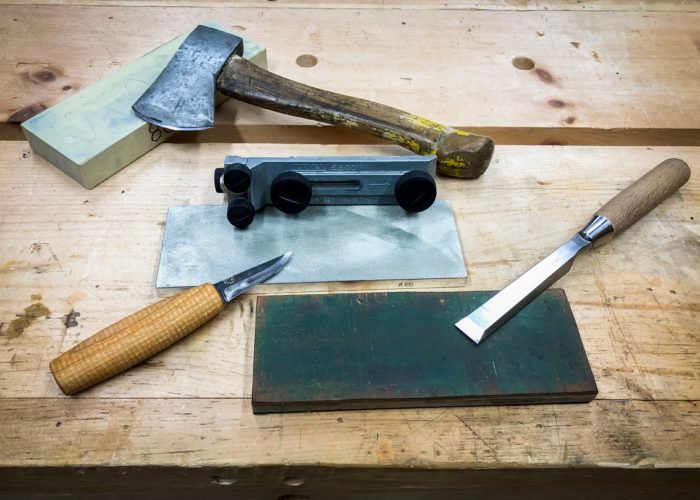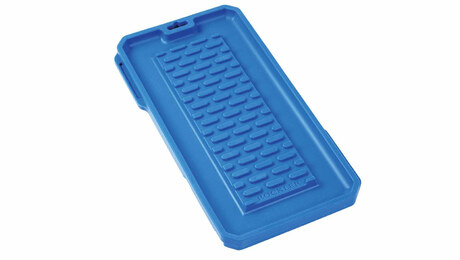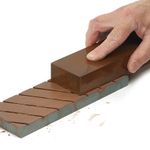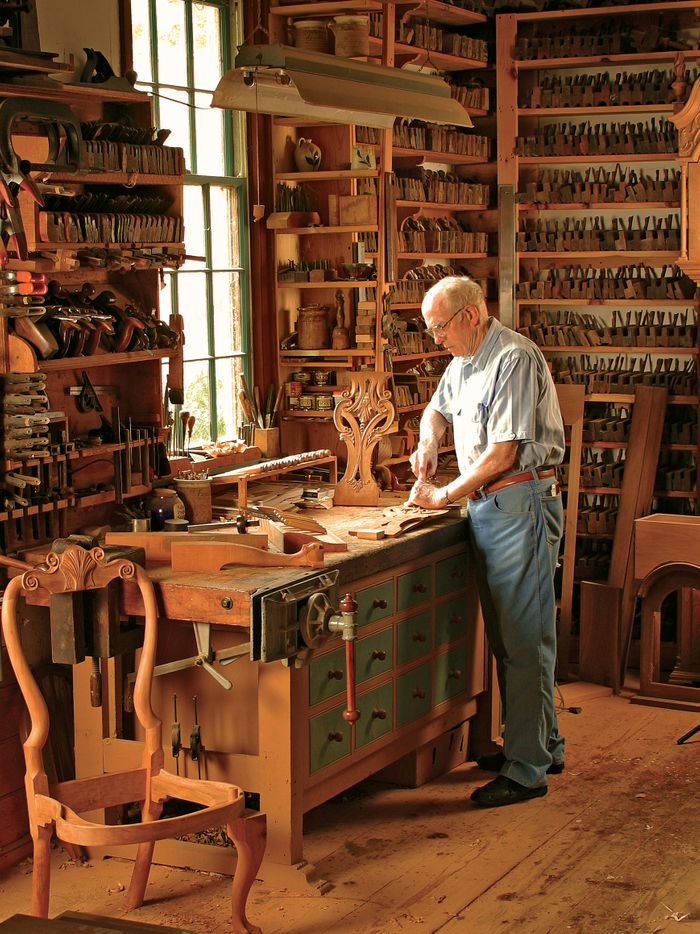The Facts of Sharpening
The reality is that dull tools are the main reason why woodworkers struggle with hand tools. There is no way around it. If you don't have sharp tools, then you won't be successful with hand tools.

I’m like a woodworking bartender. Folks come up to me and spill their guts about their woes with hand tools while I lovingly polish planes. I appreciate people doing this because I’m always up for a conversation about hand tools, but these talks always go the same way.
Distraught Woodworker: I don’t know Vic…I’ve tried everything but I still can’t get good results with (insert hand tool name here).
Me: How are your sharpening skills?
Distraught Woodworker: Ummmm…
The reality is that dull tools are the main reason why woodworkers struggle with hand tools. There is no way around it. If you don’t have sharp tools, then you won’t be successful with hand tools. The problem with sharpening is that there are far too many resources and opinions on the matter which can make it difficult for a neophyte to know what to do. In today’s climate, there is a constant struggle between opinion and fact, but make no mistake, what I’m about to tell you is fact.
When you sharpen any tool, regardless of what it is, you only have to do one thing: create two, flat and highly polished surfaces that meet to create an edge. That’s it! No more, no less. Some of those flat, polished surfaces may be tiny like in the case of a micro-bevel but those minute surfaces have to be flat and polished or you won’t have a sharp edge. Further to this, the higher the level of polish, the sharper the tool. It’s also a bonus if you can do this over and over again to make your life less of a struggle.
How you get to that point is where the opinions come in. There are many ways to get to flat and highly polished whether that is with oil, water, or diamond stones. You can also sharpen with a power system, with a jig or free-hand. All of these methods and sharpening media will get the job done. Some will be faster, some will more repeatable and some are just downright bananas, but in the end, if you are getting two flat, highly polished surfaces that meet then you will have an edge.
Personally, I use a lot of different methods because of the amount of travel I do. In my shop I use a Tormek, when I travel I used a Veritas Mk2 Honing guide and water stones. If I’m traveling by plane then I use oil stones because they travel better. I get excellent edges with all of these methods and equipment because I never loose sight of the goal: You must create two, flat and highly polished surfaces that meet to create an edge.
Now before all you readers with a leaning towards the minutia of life fire off a comment, I know that a Tormek doesn’t create a flat bevel but I can assure you that it still works. Save your arguments for an online forum.
I’m neither right or wrong in the practices I choose, it’s just me doing me. If you have a different opinion on technique and equipment, that is your right and I certainly won’t argue with you. The facts however are the facts, and they are irrefutable. No amount of foot stomping, grumbling or trolling will change this. So my sharpening advice is always: don’t sweat the technique and equipment discussions and just do what gets you two, flat and highly polished surfaces that meet to create an edge. Follow this advice and you can never go wrong….or you can research it on an online forum and see what you get. Suit yourself.
Sharpening a Router Plane with Vic Tesolin |
|
Get Sharp Fast |
|
Turning For Furniture Makers: Sharpening |
Fine Woodworking Recommended Products

Rockler Silicone Sharpening Stone Tray

Norton Water Stones

Mist Coolant System










Comments
First I am a hobbyist. I've been up and down the road to sharp tools and have arrived. I know that some woodworkers are able to obtain sharp tools using the Pinnacle guide or by hand and by numerous other ways. In my view today, sharpening is an investment in good work. It is also an financial investment. My investment includes:
Shapton glass stones thru 8000 grit
A DMT diamond plate to keep the stones flat. This is a must and I flatten after every use and often during if I'm doing a lot of tools.
A setup jig using the L-N stop locations. The jig includes use and covered storage of the stones.
L-N sharpening guide with most of the jaws. These take less than a minute to change over.
A list of all my tools with the appropriate primary and honing angles.
OK, that's a lot of stuff and cost but this allows me to sharpen with confidence every time. The results are consistent and the time to sharpen is minimal.
Sharpening is quick, it’s the procrastination that takes the most time. I’m starting to learn to move past the perceived effort delay, get sharpening and back to work in a few minutes, then telling myself why did you put that off?... as the shavings start to fly.
Seems to me that whatever method you use, your set up needs to be such that you can easily sharpen while you are in the process of working.
Hi Vic,
Kinda related since you brought up oil stones when you travel, i was thinking of adding oil stones for the same reason but I do own some pmv11 and I have been hesitant. Have you tried pmv11 on the oil stones and how well did it work?
Thanks in advance.
I kind of lucked out when I stared woodworking four years ago. There was one handtool woodworker I followed closely to learn and get started. I used the method he reccomended. I stuck with it and it works fine. I am sure that other methods would work also but why spend more money when I am getting my tools sharp with stuff I've paid for.
Madisonn_mike; I also use the Shapton stones as well as the L-N honing guide. I would love to see a few pics of the setup/storing jig you mentioned.
Sorry for the late response...I was having trouble figuring out how to respond with WordPress. Most of my blades are PM-V11 and the oil stones have no problems cutting the steel. Give it a go!
Sorry mfate, I haven't checked in of late. Here are the pics you requested. The jig slides under my tool cabinet and I slide it out, uncover the stones and go to work. The L-N guide and related stuff is in one of the drawers at the bottom of the cabinet.
Madisonn_mike; Thanks for the pics. It's helpful to see how others handle their sharpening needs.
Log in or create an account to post a comment.
Sign up Log in